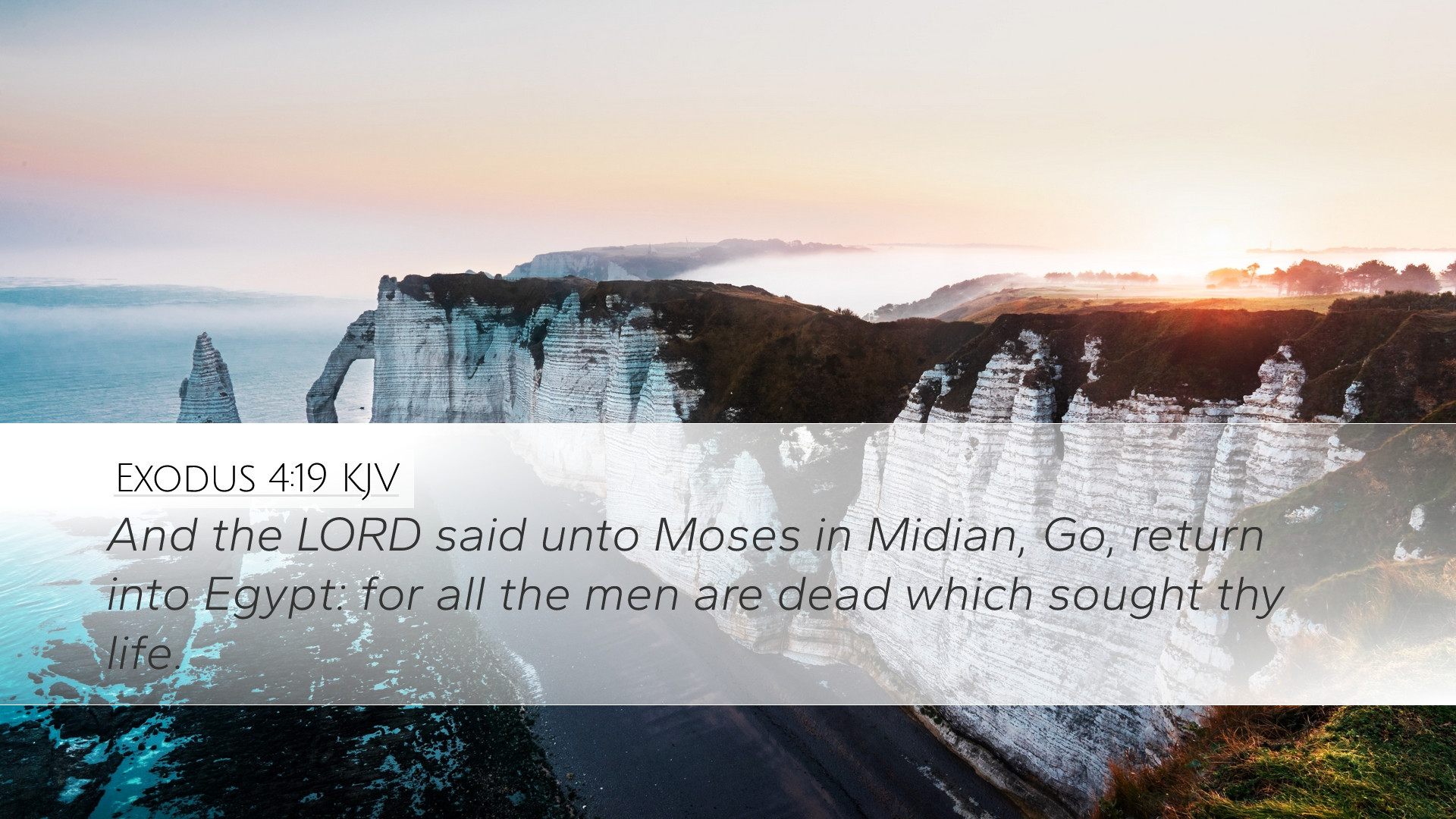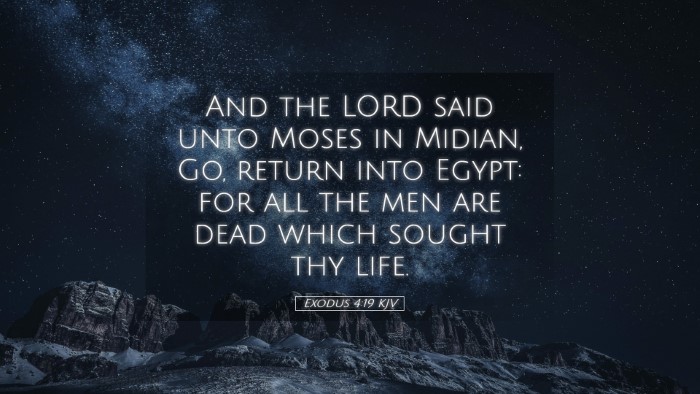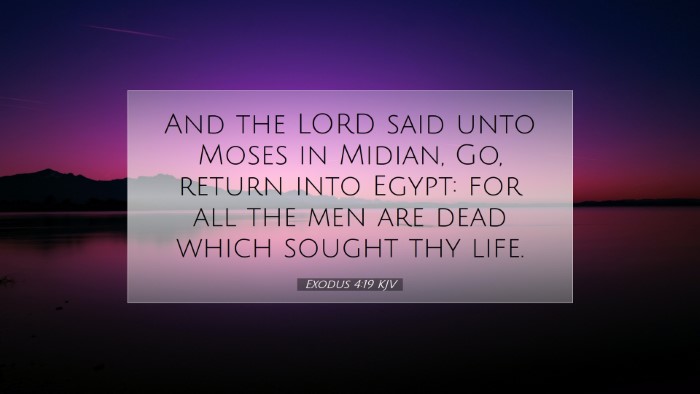Commentary on Exodus 4:19
Verse Reference: Exodus 4:19 – "And the LORD said unto Moses in Midian, Go, return into Egypt: for all the men are dead which sought thy life."
Introduction
This verse serves as a pivotal moment in the narrative of Exodus, marking the divine commissioning of Moses to lead the Israelites out of bondage. The context of this declaration is critical for understanding the broader themes of deliverance, divine assurance, and the fulfillment of God's covenant promises.
Contextual Analysis
The preceding chapters provide insights into Moses' early life, his flight to Midian, and his encounter with God at the burning bush. Moses' hesitations and concerns about his adequacy as a leader contrast sharply with God’s determined purpose to deliver Israel through him. This verse reveals God’s assurance that circumstances have changed; those who once threatened Moses’ life are no longer a danger.
God's Assurance
Moses had fled Egypt due to the threat against his life. In God’s directive to return, He alleviates Moses’ fears by informing him that “all the men are dead which sought thy life.” This statement encompasses both a practical and theological assurance. The practical aspect assures Moses of safety, while the theological assures him of God’s providential control over history.
Commentary Insights
-
Matthew Henry:
Matthew Henry emphasizes the courage that is required of Moses for this mission, highlighting the significance of God replacing fear with divine assurance. He suggests that God’s command reflects His sovereignty over human affairs and His preparedness to work through those whom He chooses.
-
Albert Barnes:
Barnes remarks on the importance of this message as a preparatory step for Moses. He points out how God provides clear and reassuring instructions, indicating that Pharaoh’s power and intentions are ultimately under divine control. This sets a precedent for Moses to trust in God’s plan despite forthcoming challenges.
-
Adam Clarke:
Adam Clarke expands on the implications of Egypt’s political environment by suggesting that the death of those who sought Moses' life was a divine strategy to open the way for the Israelites’ exodus. Clarke notes that God's timing is perfect, and there’s profound encouragement in the fact that God is working behind the scenes for His people’s deliverance.
Theological Themes
Several themes arise from this text, essential for deeper reflection and application:
-
Divine Providence:
This passage illustrates the concept of divine providence, demonstrating that God orchestrates circumstances for His purposes. The elimination of Moses' enemies is a testament to His ability to protect and prepare His chosen servant for the task ahead.
-
Courage and Obedience:
Moses' journey back to Egypt is an act of obedience to God despite his fears. This serves as a lesson for all believers on the importance of stepping out in faith, knowing that God prepares the way and provides strength in obedience.
-
Calling and Commissioning:
God’s call of Moses illustrates a significant Biblical theme where God equips those He calls. Leaders and pastors can draw on this example to encourage their congregations regarding their own purposes and callings.
Application for Today
This verse challenges modern believers to reflect on their personal callings and the fears that may accompany such a call. The story of Moses reminds God’s followers that He calls ordinary people to extraordinary missions, providing them with what they need to fulfill their destinies.
Encouragement for Pastors and Leaders
Pastors and church leaders can draw encouragement from this narrative. Just as God reassured Moses, He assures us that He has control over situations that seem insurmountable. Leadership often requires stepping out into the unknown, and this verse highlights the necessity of trusting God’s promises.
Reflection for Students and Theologians
Theologians can reflect on the broader implications of divine interaction with humanity as represented in this passage. It offers rich theological insight into God's plans and purposes in history, urging an exploration of how divine calling manifests in contemporary contexts.
Conclusion
Exodus 4:19 encapsulates a significant turning point not just for Moses but also for the entire nation of Israel. Understanding this verse through the insights of respected commentators provides a richer appreciation of its depth, which is vital for those teaching and studying the Scriptures. As we ponder the divine assurance provided to Moses, may we also embrace our own calls to service with faith and courage.


